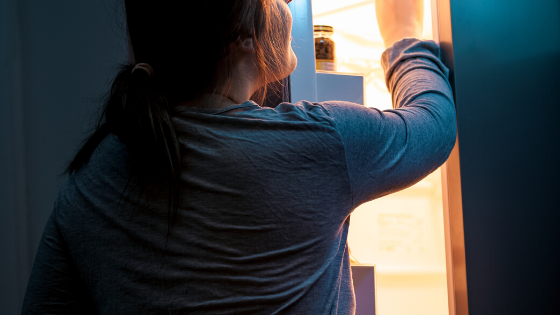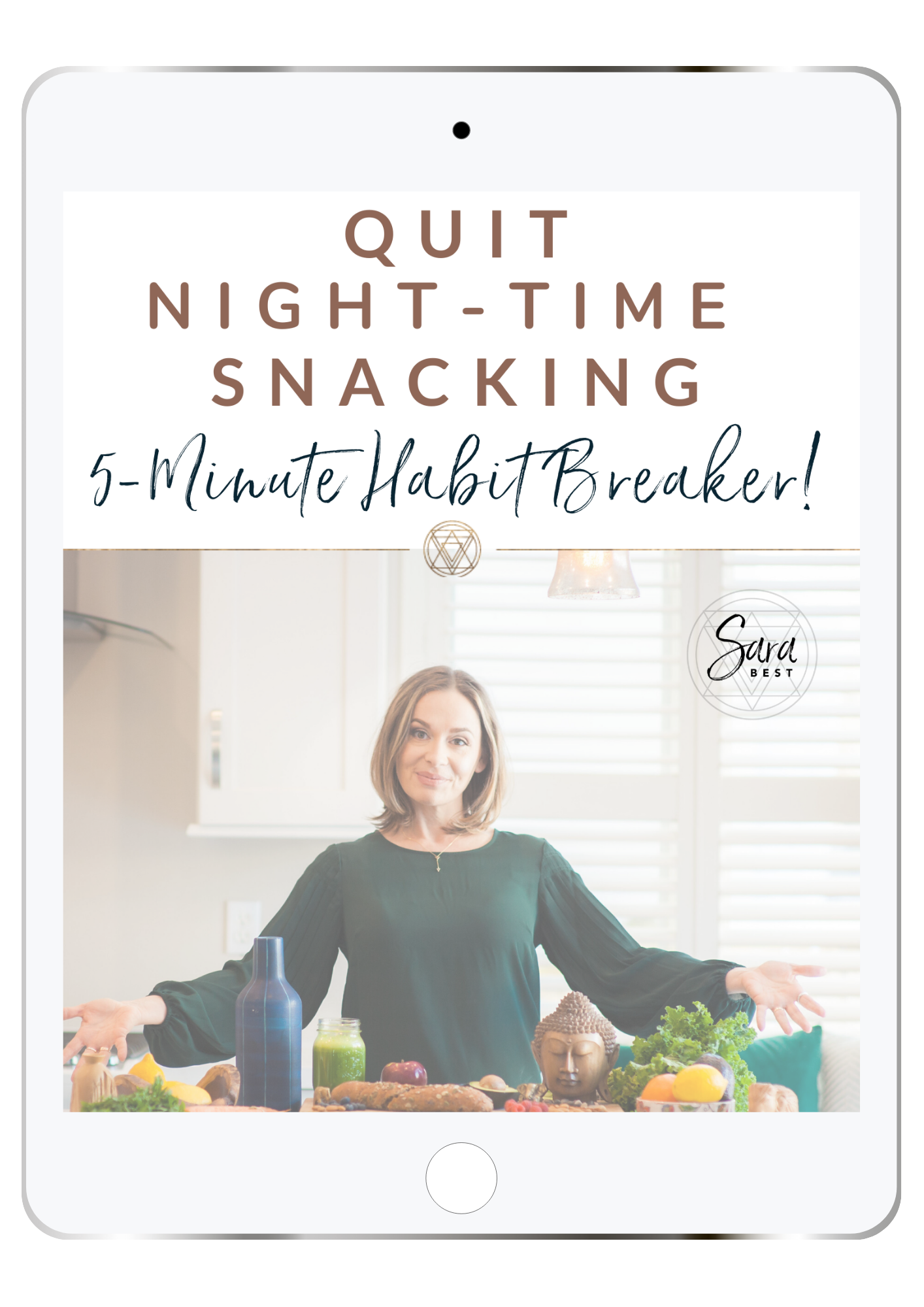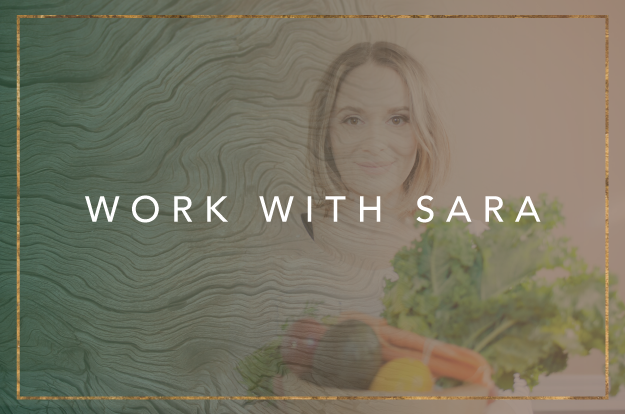
You know how it goes. You do so well all day with healthy eating: Healthy smoothie for breakfast, a salad for lunch, healthy balanced dinner, even those nutritious snacks that you packed in your purse to take with you.
Everything is going to plan until night-time comes along and you end up plopped on the couch eating junk food that you know is not going to bring you closer to your goals.
You’re mad at yourself but you just can’t seem to stop!
And you’re not alone! Night-time snacking is the number one thing I get asked about from my online community, from my clients and students, and from people who just find me on social media..
And when I was really struggling with my own relationship to food, it was something that I felt like I was never going to be able to get under control. So I get it!
If night-time snacking is something you want to be free of, then I want to share with you three simple steps that I use to avoid night-time snacking personally and that I also now teach to my clients and students.
3 Simple Steps to Avoid Night-time Snacking
Step 1: Breathe and be Present
More often than not, when we’re snacking mindlessly at night, we’re not paying attention. We’ve slipped into autopilot and that’s a place where we rarely make good food choices. Your breath is the fastest and easiest way to bring you back into the present moment.
I want you to get out of autopilot by connecting to your breath. When you feel those snacks pulling you to the pantry or freezer, stop and make yourself take three deep breaths.
Step 2: Create Some Space
Your brain is always more interested in rewards that are immediate. Psychologists call this, “delay discounting,” which means that rewards that are further away (either in space or time) are less appealing to your brain. This fact is something that you can use to your advantage when it comes to night-time snacking.
The chips that you see in the pantry, the ice cream in the freezer, those are very attractive to your brain because they are right there, right in front of you. But, if you create some distance between yourself and that reward, your brain is going to be less interested in it.
Here’s how to do it:
Set a timer for 10 minutes and tell yourself that you can have your snack, but you’re going to have it 10 minutes from now.
Right away that makes the snack a little less desirable for your brain than it would have been if it was something you were anticipating having immediately.
During the 10 minutes that you’re waiting you can create even more distance between you and the snack. You can do this by moving to another room, distracting yourself by doing something else or using the time to journal and get curious about why you really want that “comfort” food (how you’re hoping it will make you feel).
Simply create some space between yourself and that food for 10 minutes. And when that timer goes off, if you still really want the snack, have it, that’s fine. And if you don’t want it anymore, that’s great too.
You did some important work in reprogramming and rewiring what’s going on in your brain and the more you practice this, the greater control you’ll start to experience.

Step 3: Think About a Plan
Whether you end up eating your snack this time or not, get curious about what’s triggering these cravings for you in the evening and create a plan about what you can do instead of snacking.
Often at night, we’re tired. We’re overwhelmed. We’re not sleeping well. We’ve got too much on our plate. We’re feeling anxious. We’re feeling exhausted.
What can you do instead of turning to food? Think about how you can create routines and rituals for yourself that will actually address the underlying issue instead of using food.
If you’re feeling overwhelmed you could do some light stretching, deep breathing, or relaxation techniques. Maybe you need to take a bubble bath. Maybe you need to go to bed earlier.
If you’re worried about something, maybe you need to write down a list of what’s going on and what your strategy is going to be to tackle it.
If you’re feeling a little empty and unfulfilled, maybe you need to remind yourself of a hobby you once loved and think about what would be involved in taking it up again. Or maybe doing some volunteer work and being of service somewhere would help you fill your cup.
The important thing is that you start to recognize your triggers and you create a plan in advance for what you’re going to do when you encounter those triggers.
Having this plan is so helpful. Instead of slipping into autopilot and going back to the food, you’re going to be able to turn to your plan and do something that’s going to be healthier and far more effective in addressing whatever that trigger was.
Ok, let’s do a quick recap of the 3 steps to stop nighttime snacking:
First you’re going to take a few deep breaths to be present and get out of autopilot.
Second, you’re taking advantage of the delay discounting that your brain does naturally and you’re going to create some space between you and your snack. This is going to help you feel stronger and better able to make a good choice rather than when that food is right in front of you.
And finally you’re going to make a plan for what you’re going to do next time when you encounter the same triggers, the same feelings, the same thoughts that tend to send you towards the food. What you can do instead that’s really going to serve you the next time this happens?
I know first-hand how frustrating night-time snacking can be. I hope these three steps are helpful. Give them a try and let me know in the comments how it’s going for you!





Love all your wonderful suggestions sara I watch your videos daily eat slower mindfully so many great things to think about journaling helps me as well !! Your awesome!! Yay !!
Thanks! I needed that, evening is when I lose it. Reading your book now. Enjoy San Francisco!
Thx for the great suggestions for night time eating. I appreciate the solid suggestions to stop this habit.